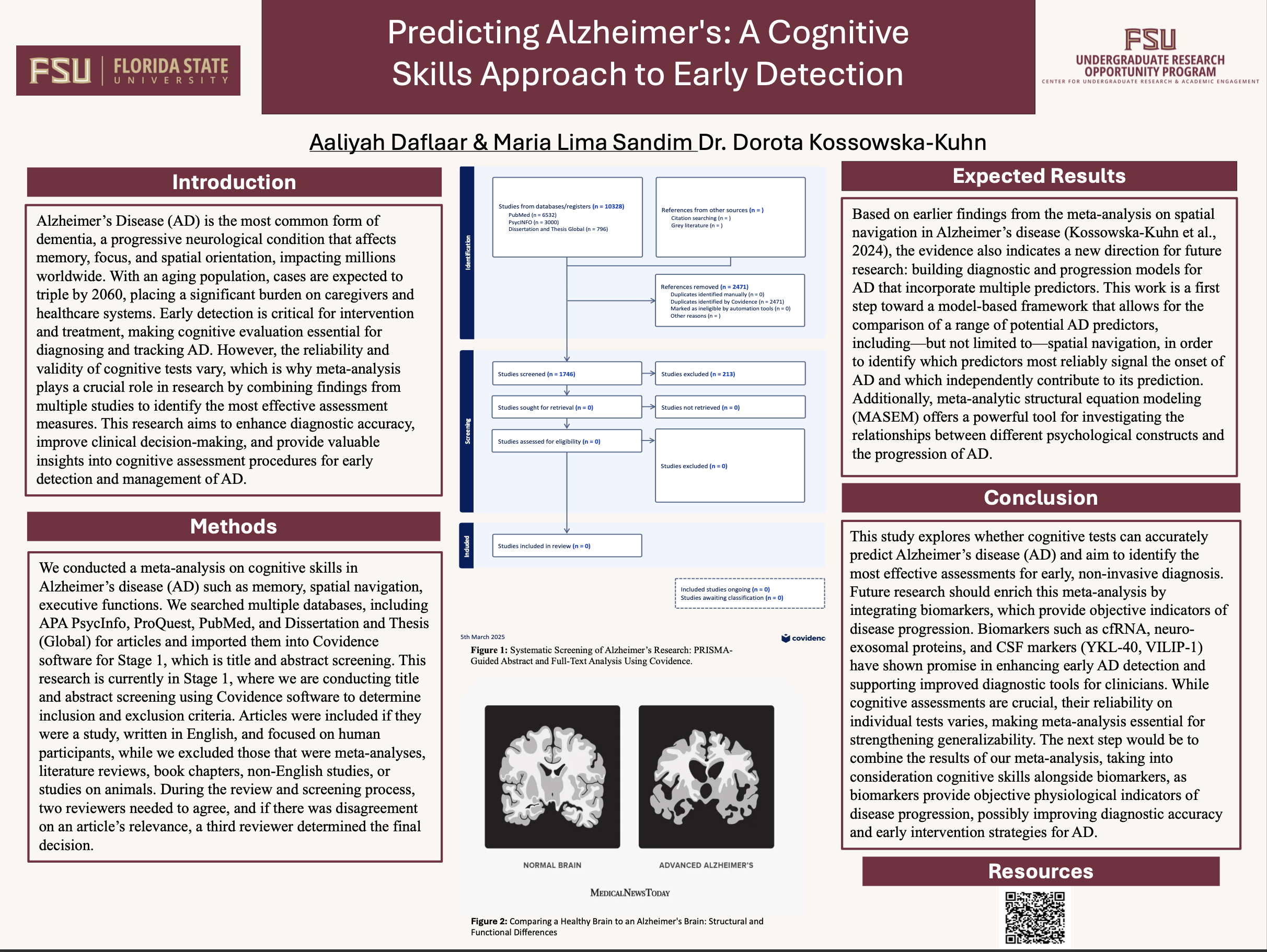Research Symposium
25th annual Undergraduate Research Symposium, April 1, 2025
Aaliyah Daflaar Poster Session 1: 9:30 am - 10:30 am/ Poster #43

BIO
I am a junior at Florida State University, pursuing a degree in psychology with a minor in child development. Originally from the beautiful Caribbean Island of Sint Maarten, I have always been deeply aware of the challenges surrounding mental health, particularly the stigma that prevents many from seeking help. Growing up, I witnessed firsthand how mental health struggles were often overlooked or misunderstood, which inspired me to become an advocate for change.
My research interests include Alzheimer's disease, ADHD, and the psychological effects of procrastination, topics that not only intrigue me academically but also hold personal significance. Through my studies and research, I aim to deepen my understanding of cognitive and behavioral health while finding ways to improve support systems for those in need.
In the future, I aspire to become a clinical psychologist, dedicating my career to helping others heal and fostering greater mental health awareness and accessibility. Beyond my professional goals, I am committed to giving back to my community, working to break generational cycles of stigma, and ensuring that mental health care becomes a priority rather than an afterthought.
Predicting Alzheimer's: A Cognitive Skills Approach to Early Detection
Authors: Aaliyah Daflaar, Dr. Dorota Kossowska-KuhnStudent Major: Psychology
Mentor: Dr. Dorota Kossowska-Kuhn
Mentor's Department: Psychology Mentor's College: Florida State University Co-Presenters: Maria Lima Sandim
Abstract
The most common type of dementia, Alzheimer's disease (AD), affects millions of people globally and puts a heavy burden on healthcare systems. For the purpose of intervention and disease management, early diagnosis is essential. This study examines meta-analyses of previous research to see how well cognitive test measures predict AD. To achieve a thorough understanding of trends in cognitive decline across a variety of demographics, the study covers participants 55 years of age and older, both with and without cognitive impairment.
The Mini-Mental State Examination (MMSE), Clinical Dementia Rating (CDR), and Judgment of Line Orientation (JLO) are important cognitive tests that measure executive function, memory, and visuospatial abilities. The goal of this study is to determine the best accurate metrics for early AD detection by thoroughly examining cognitive evaluation techniques and their predictive validity.
According to preliminary findings, blood-based biomarkers including cfRNA and neuro-exosomal proteins have a high predictive value for AD, and cognitive modeling accurately predicts the disease. Furthermore, BMI, genetic risk factors, and cerebrospinal fluid (CSF) biomarkers including YKL-40 and VILIP-1 provide insights into the course of the disease. These results provide credibility to the use of biomarkers in conjunction with cognitive models to increase diagnostic precision.
This study offers important new information on cognitive evaluation techniques, which will support clinical judgment in the future and improve early AD identification techniques.
Keywords: Alzheimer's Disease, Psychology, Meta-Analysis

